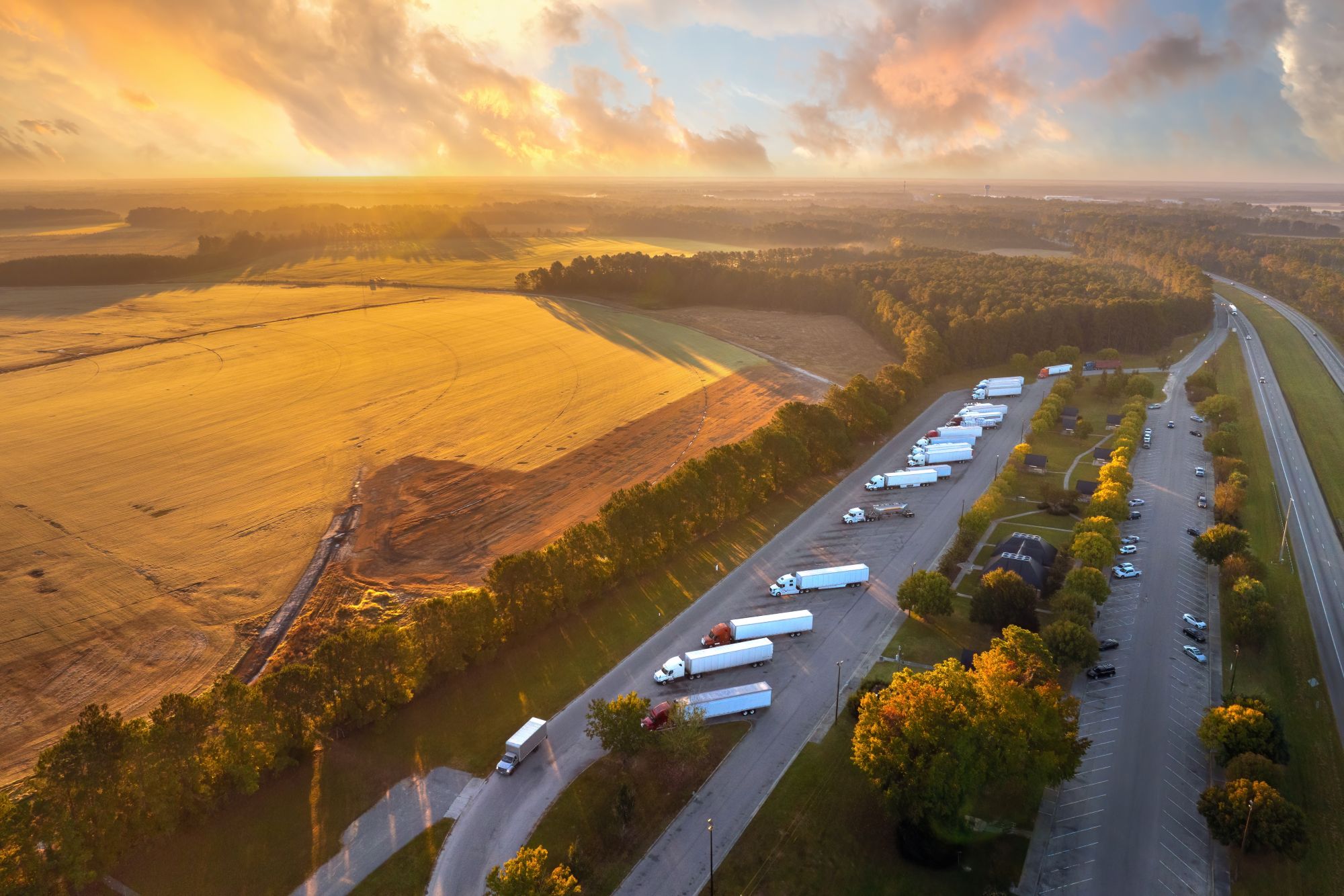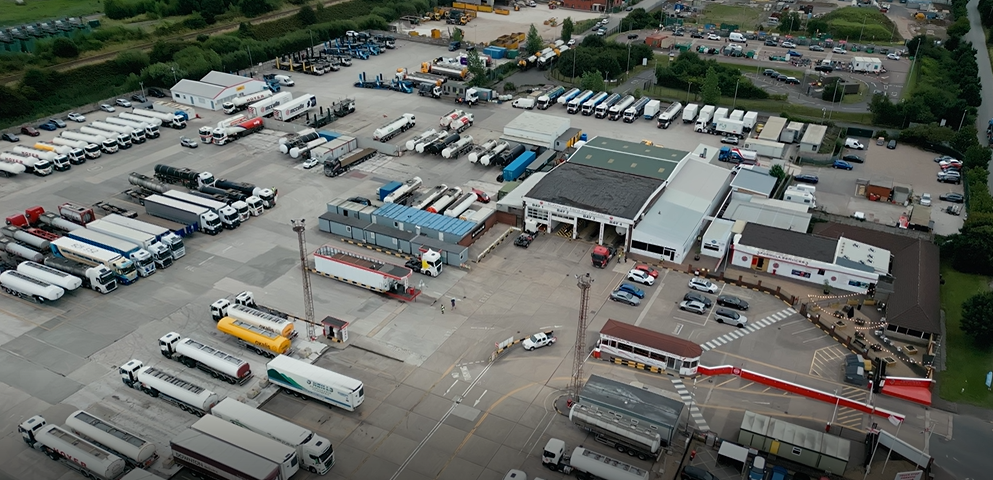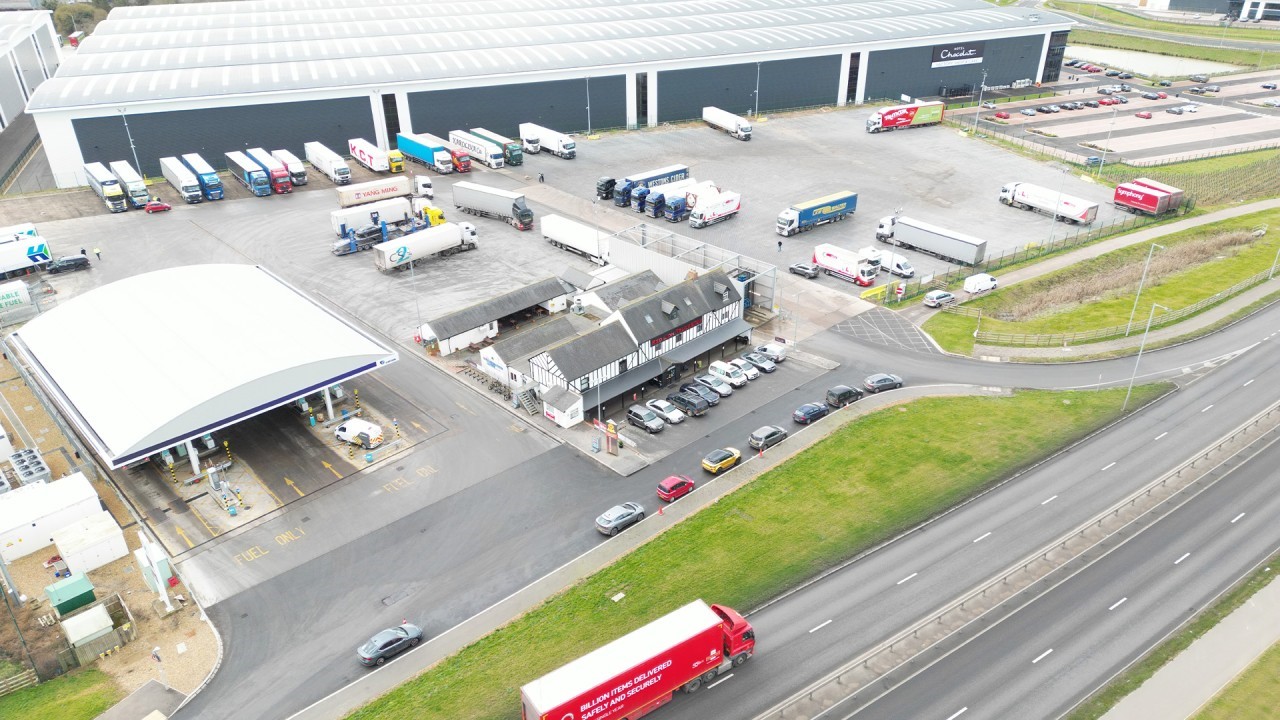
Susie Jones
Red Lion Truckstop - en model for succes
Oprettet: 28.08.2024
•
Opdateret: 28.08.2024
Kun 200 meter fra M1 ved afkørsel 16 ligger Red Lion truckstop. Red Lion blev etableret for mere end 30 år siden og er blevet chaufførernes foretrukne destination. Den beskrives som et paradis for lastbilchauffører, og fællesskabet, den lækre mad og det store udvalg af faciliteter gør dette prisbelønnede stoppested til en fast favorit. Stedets operatør, Ali Sadrudin, fortæller os om stedet.
"Pladsen kan rumme over 200 lastbiler pr. nat. Der er en højhastighedstankstation, som ikke kun leverer diesel og AdBlue, men også komprimeret naturgas (CNG). Der er også en nybygget bemandet vaskehal med 3 børster. Facilitetsbygningen har en restaurant og bar, en butik med lastbiltilbehør, et møntvaskeri, et spillecenter, pengeautomater, bemandede brusere og toiletter samt selskabs- og mødelokaler."
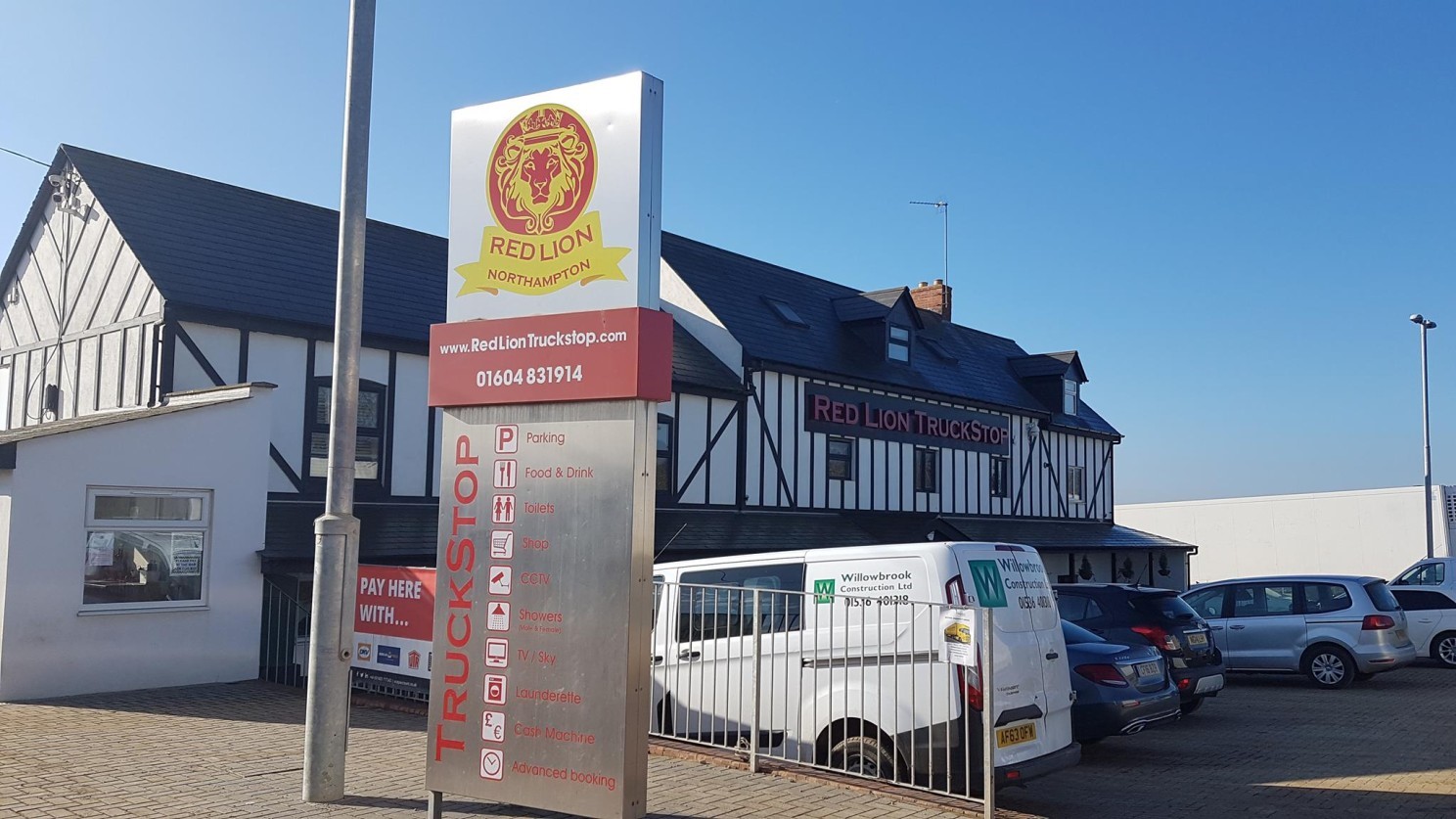
Faciliteter
Nogle ser måske truckstops som et hvilested for chauffører, men de spiller også en afgørende rolle for chaufførernes velbefindende. Hos SNAP ved vi, at det er vigtigt at give chaufførerne rene faciliteter. Men hvad har chaufførerne ellers brug for?
"Jeg tror, at kunderne er på udkig efter det grundlæggende, men gjort rigtigt. God mad, rene faciliteter og sikkerhed for deres køretøjer og deres last. Hvis du kan levere det, vil du få glade og tilbagevendende kunder," siger Ali.
Et hurtigt blik på Red Lion's Facebook-side fortæller, at de bestemt følger dette mantra, og det virker. Kommentarer som "fantastisk truckstop, det bedste i landet" og "muligvis et af de bedste truckstops i England" understøtter de mere end 4.000 positive Google-anmeldelser.
Sikkerhed og tryghed
Men lækre måltider og rene faciliteter er ikke det eneste, Ali og teamet fokuserer på. De tager også sikkerhed ekstremt alvorligt. I 2020 blev det anslået, at der i Storbritannien var over 4.000 forbrydelser i forbindelse med lastbiler, fragt og gods - hvilket resulterede i en omkostning på 250 millioner pund for Storbritannien. Steder som Red Lion har indført sikkerhedsforanstaltninger for at reducere dette antal.
Ali siger, at "SNAP har hjulpet os med at opnå TAPA PSR Level 3-certificering." I februar 2023 blev The Red Lion tildelt Park Mark Freight Award. Ali fortæller os, hvilke sikkerhedsforanstaltninger der blev truffet for at opnå denne pris.
"Stedet er et sikkert sted. Vi har døgnbemandede vagter, der patruljerer på stedet, og en tredjepart overvåger CCTV. Vi har et uafbrudt hegn på 3 m rundt om pladsen med faste kameraer, der ser på alle punkter af det, så det kan opdage enhver uautoriseret indgang eller skade på hegnspanelerne. Pladsen er også fuldt oplyst til de krævede lux-niveauer, som politiet har specificeret, med bevægelsesdetekteringskameraer strategisk placeret rundt omkring på pladsen for at opfange enhver uautoriseret bevægelse og sikre, at alle dele af pladsen er under opsyn. ANPR-system til at opfange nummerplader, der kører ind og ud af området, og en hurtig alarm til politiet, hvis der er behov for at ringe til dem."
Red Lion har også truffet ekstra foranstaltninger for at sikre, at kvindelige chauffører føler sig godt tilpas og trygge under deres besøg. Der er faciliteter som kvindebrusere, -toiletter og -omklædningsrum til rådighed. Disse foranstaltninger er ikke gået ubemærket hen, for i januar 2023 blev rastepladsen udnævnt til en af de bedste rastepladser i Storbritannien for kvindelige lastbilchauffører.
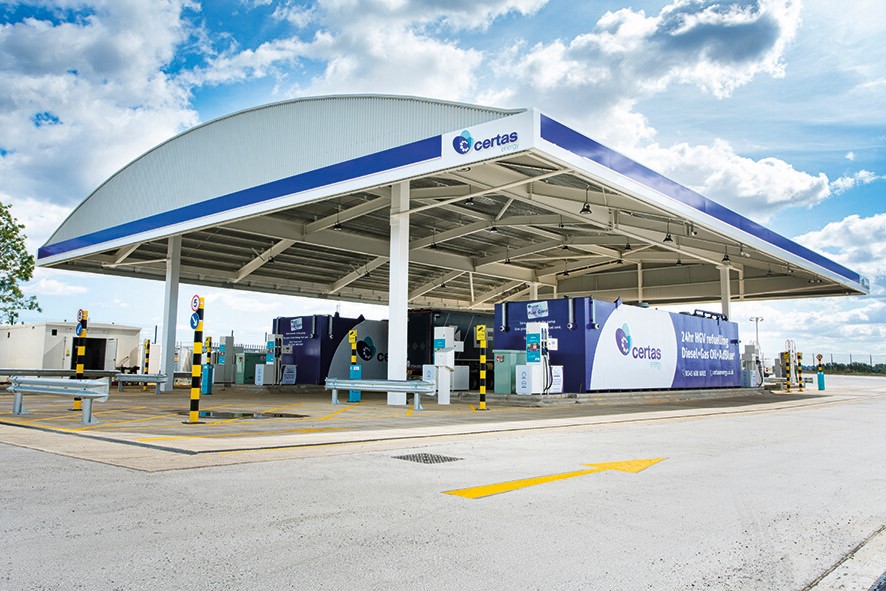
Omsætning og ekspansion
En af de mange fordele for lokationsledere, der bruger SNAP, er forbedret rentabilitet og optimering. Som en af de første kunder hos SNAP forklarer Ali, hvordan SNAP har givet virksomheden ekstra indtægter, siden han kom med i 2009.
"Det har været en gradvis proces gennem årene, men da bilisternes forbrugsvaner hele tiden ændrer sig og bliver mere og mere kontantløse, kan jeg forestille mig, at et nyt site, der tager SNAP til sig, vil få et øjeblikkeligt afkast. Omkring 65 % af hjemmesidens samlede indtægter kommer fra SNAP."
Der er virkelig sket meget i branchen siden 2009. Ali forklarer, hvordan sitet har været nødt til at tilpasse sig den ændrede branche og den øgede efterspørgsel.
"Pladsen kunne oprindeligt kun rumme 130 lastbiler pr. nat, men i 2018 blev pladsen udvidet til 200+ for at imødekomme den øgede efterspørgsel," siger Ali. For chauffører og flåder, der bruger SNAP, bliver de 200 pladser let bookbare.
Blot fire år senere oplevede stedet endnu en udvidelse med introduktionen af et nyt vaskeanlæg til lastbiler. Det topmoderne vaskeanlæg med tre børster åbnede i november 2022 og er velegnet til de fleste LGV'er.
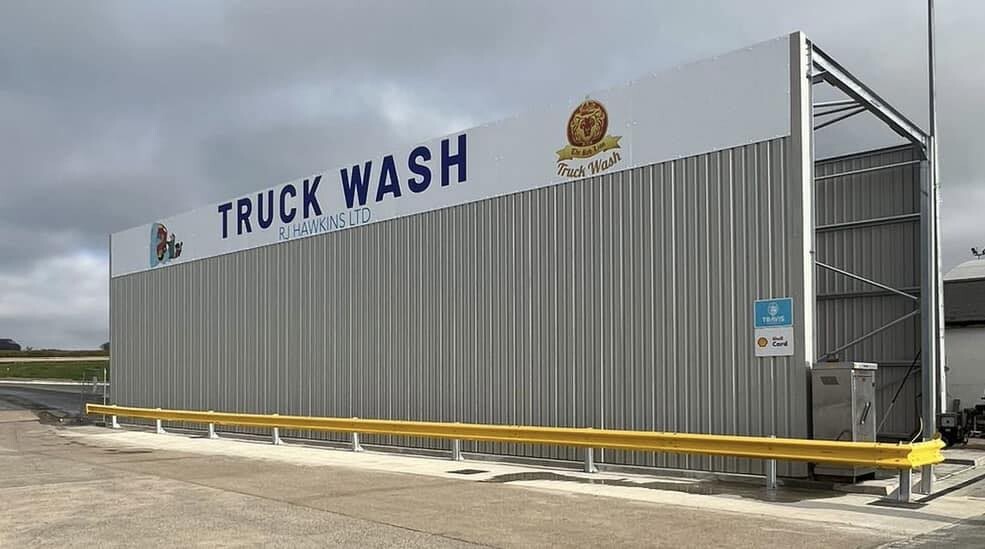
Bliv medlem af SNAP som servicepartner
Når du bliver medlem af SNAP, får du adgang til 160.000 chauffører og 7.000 flåder. For truckstops som Red Lion, der konstant stræber efter at tilbyde nye initiativer og faciliteter til deres kunder, giver SNAP mulighed for at gøre det.
"SNAP gjorde det muligt for sitet at tilbyde en alternativ betalingsmetode, som kun kan være til gavn for kunderne og trække dem til sitet," siger Ali.
Fordelene ved SNAP
Over 160.000 chauffører bruger SNAP Account. Derfor er høje standarder afgørende. Selv om de servicepartnere, der accepterer SNAP Account-betalinger, er uafhængige virksomheder, gennemgår vi hvert sted og sikrer, at de lever op til vores standarder. Derudover står vores netværksteam til rådighed, når der er behov for det.
"SNAP har altid støttet os lige fra første gang, vi meldte os ind," siger Ali.
På spørgsmålet om, hvad det bedste ved SNAP er for dem, siger Ali: "Det er serviceniveauet, de er gået langt for at skræddersy billetsystemet til vores behov."
Og hans råd til lastbilpark-ejere, der overvejer at åbne deres sted for SNAP-chauffører?
"Gør det! Hvorfor skulle du ikke ønske at få flere kunder til din hjemmeside?"
Tilmeld dig SNAP
Gå til [snapacc.com] (https://snapacc.com/) for at forbedre din rentabilitet og optimere driften af dit websted.
